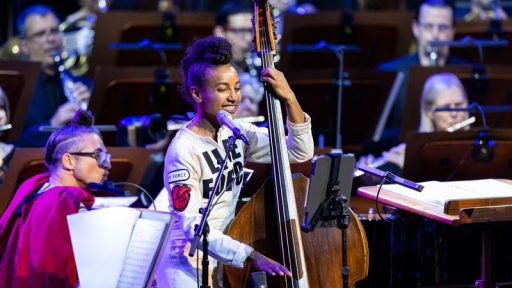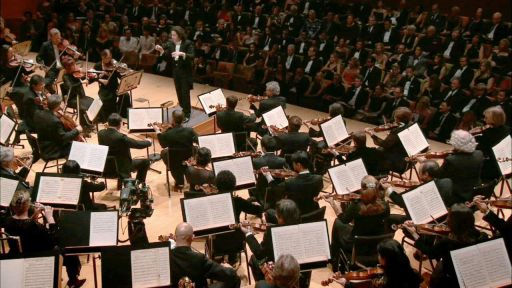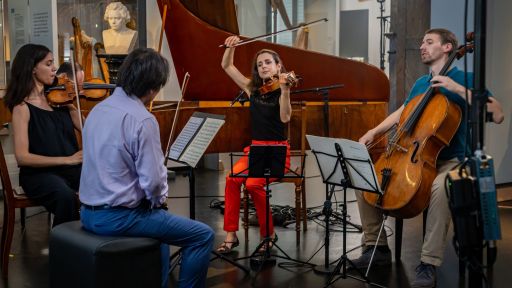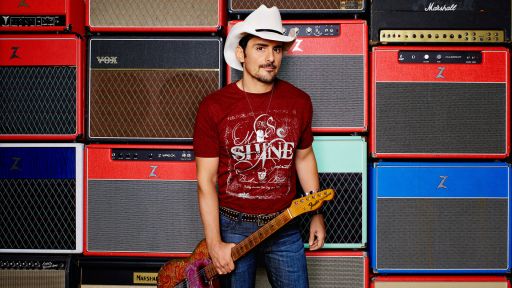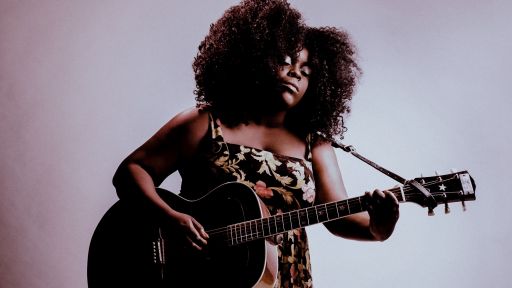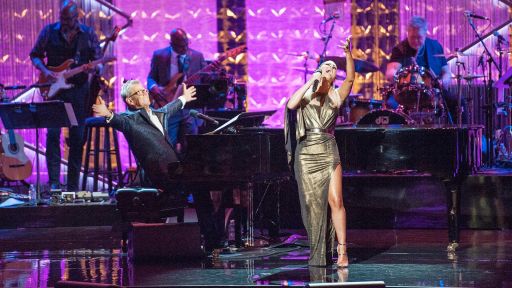Marin Alsop reflects on her first interaction with Leonard Bernstein at the Tanglewood Music Festival.
Features
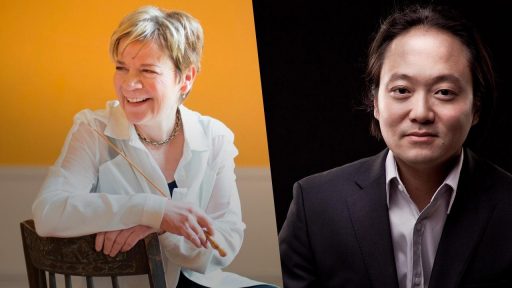
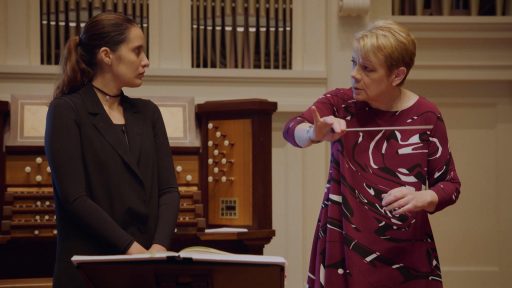
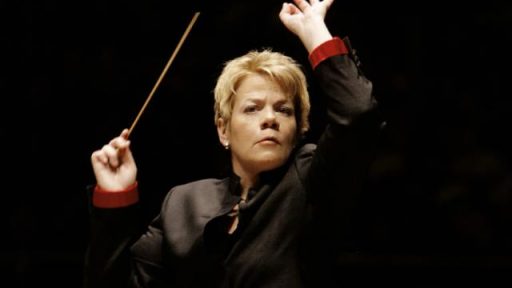
That first day, when Bernstein arrived, he was late, of course.
And everybody's there you know, and everybody's waiting, 'Shhh!' Not a peep.
And he walked in the room, smoking, he said, ' Now where's this Marin?' And I was like, 'Hello!' And he said, 'Come on, I've heard a lot about you.' That's when our deep connection began.
♪♪♪ Really work those spaces before the piano, each time.
Not this time. I think not.
Why not all the time?
Ah, is such a, um.
Surprise.
A beautiful morph of strings.
So you cut this off? Yes. Off. There's a hole.
Yes. So we try... This way there' is no hole. See if you can do it.
It's a little hard.
I know a little tricky, huh? Will you stay here or... [Laughs] Bernstein was my hero and finally becoming his student and being able to work with him was beyond magical.
[Applause] I think this photo might have been the day after I had this wild experience, I was conducting the orchestra, the student orchestra and Bernstein was listening from the audience. And, I finished and usually he ran up and kind of attacked and hugged and did all kinds of things. And that day, you know, he was out in the audience that night.
So I went back and I, I said, 'Oh, maestro, is everything okay?' And he said, he was really lost and thought. And he said, 'You know, I just don't get it. I don't understand.' I said, 'What, what is it? What is it? 'He said, 'When I close my eyes, I can't tell you're a woman.'
So I said,' Well, listen, if you're more comfortable with your eyes closed, I'm good with that.
You know, you can come to all my concerts and close your eyes.'. ♪♪♪
You May Also Like
